People
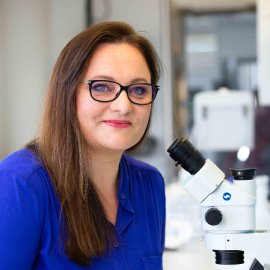
prof. Magdalena Dziembowska
Graduated from the Interdepartmental Individual Studies in Mathematics and Natural Sciences at the University of Warsaw, MA in Biology. She completed her doctoral thesis at the M. Nencki Institute of Experimental Biology of the Polish Academy of Sciences in the Laboratory of Molecular Neurobiology. She did her postdoctoral training at the Curie Institute and the Pasteur Institute in France. Since November 2013, she has headed her research group.
She is a great lover of France and paintings.
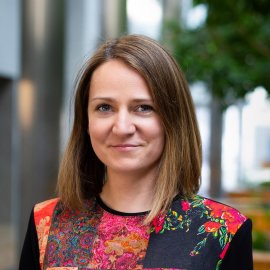
dr Bożena Kuźniewska
She graduated with a master's degree in biotechnology, specialisation: biotechnology in production and animal health protection at Warsaw University of Life Sciences. She completed her PhD thesis at the M. Nencki Institute of Experimental Biology of the Polish Academy of Sciences in the Laboratory of Neurobiology. Currently, she is the head of the OPUS 26 grant in which she is investigating the potential of dietary intervention in the treatment of genetically mediated autism in a mouse model. She specialises in data analysis.
Her passions are handicrafts and travels.
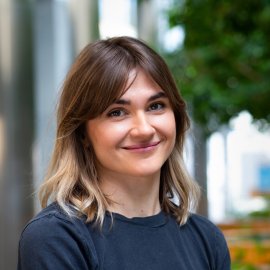
dr Marta Magnowska
She has a Master's degree in biotechnology, specialisation: biotechnology in production and animal health protection at the Warsaw University of Life Sciences. She completed her PhD thesis at the M. Nencki Institute of Experimental Biology, PAS, in the Laboratory of Cell Biophysics. She specialises in imaging using a range of microscopic techniques and in vitro cell culture methods. She is currently studying mitochondria in the context of loss of the chaperone protein TRAP1.
In her spare time she practices yoga, cooks healthily and spends time with her family.
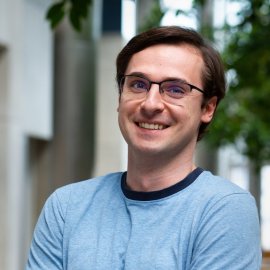
Jacek Miłek, MSc
Graduated with a master's degree in biotechnology, from the Faculty of Biology, University of Warsaw. Specialises in molecular biology techniques, in particular working with nucleic acids. Involved in many research projects.
Passionate about the world of plants and DIY.

Piotr Ostapczuk, MSc
Graduated with a master's degree in biotechnology, from the Faculty of Biology, University of Warsaw. For his PhD, he is working on the analysis of Tau protein aggregates in a cellular model of long-term mitochondrial stress. In her work, she uses a variety of protein techniques such as Western Blot, immunoprecipitation and ultracentrifugation, and uses immunofluorescence image analysis to qualitatively study protein aggregates. He specialises in cell cultures and neuronal primary cultures isolated from rat hippocampi.
He enjoys eating well and burning calories on the climbing wall.
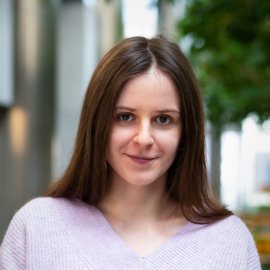
Aleksandra Stawikowska, MSc
Graduated in biotechnology, specialising in biotechnology in production and animal health from Warsaw University of Life Sciences. As part of her PhD, she is conducting research to determine the effect of loss of the chaperone protein TRAP1 on mitochondrial function in the brain of a mouse model of autism spectrum disorders. Her work uses techniques such as synaptoneurosome and mitochondrial isolation, Western Blot, PCR, luminescence and fluorescence measurements and respirometry using the Seahorse tool.
In her spare time, she enjoys reading books and walking in the woods.
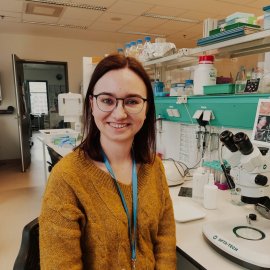
Patrycja Wardaszka-Pianka, MSc
She graduated in biotechnology, specialising in chemical biotechnology, from the Faculty of Chemistry, Warsaw University of Technology. Her research focuses on the polyadenylation process in neurons. She is particularly interested in the role of the poly(A) polymerase TENT2. Patrycja uses electrophysiological techniques in her research, as well as Western Blot, RT-qPCR, primary cell cultures and RNA isolation.
She loves trivia collecting, travels and hiking.
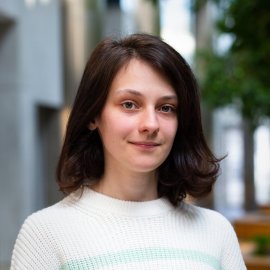
Dorota Malicka, MSc
Graduated in biology , specialisation: molecular biology at the Faculty of Biology, University of Warsaw. As part of her master's thesis, she is conducting research to determine the impact of mutations in the gene encoding the mitochondrial chaperone protein TRAP1 on the function and dynamics of mitochondria in the mouse brain. The study uses Trap1 mice, which are a model of autism spectrum disorders. Her work uses techniques such as isolation of mitochondria from different brain structures, Western-Blot and PCR.
In her free time, she enjoys reading books, taking walks (with good music or an audiobook in the background) and playing board games.